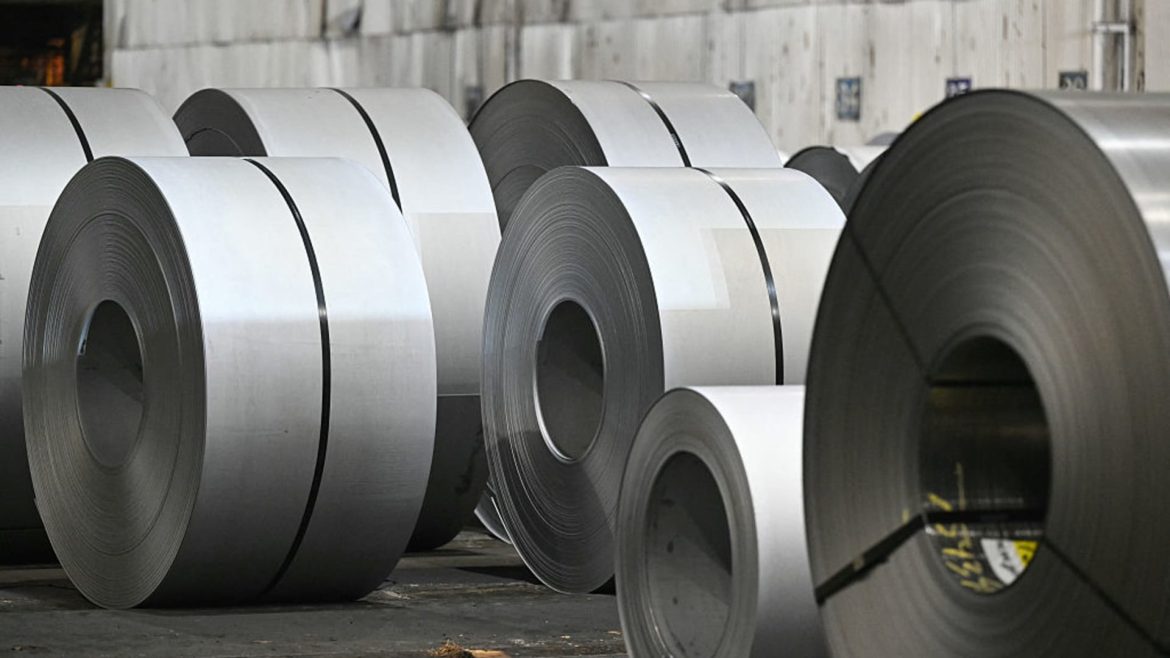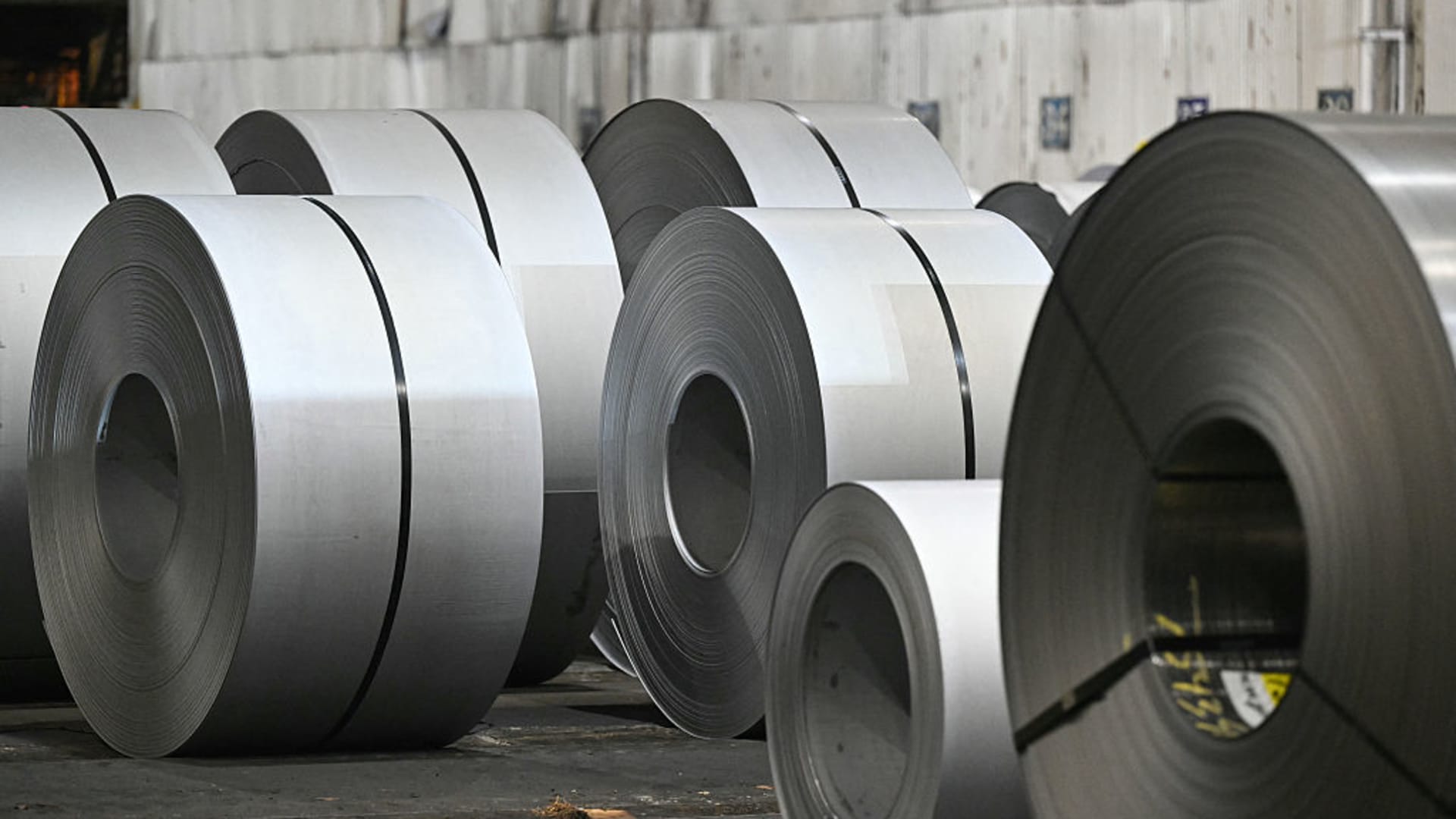The Shifting Fortunes of American Steel: Nippon’s Acquisition of U.S. Steel
The American steel industry witnessed a seismic shift on Wednesday, June 18, 2025, as U.S. Steel ceased trading on the New York Stock Exchange following the completion of its acquisition by Japan’s Nippon Steel. This event, culminating an 18-month saga, marks the end of an era for an iconic American industrial name and signals a complex new chapter for the domestic steel landscape. The journey to this outcome was anything but straightforward, characterized by political intervention, national security concerns, and intense union opposition.
A Deal Met with Resistance
In December 2023, Nippon Steel announced its intention to acquire U.S. Steel for $14.9 billion, a deal that would make U.S. Steel a wholly-owned subsidiary. However, the proposed acquisition immediately ignited controversy. The United Steelworkers union vehemently opposed the sale, fearing job losses and a weakening of American steel production. Simultaneously, the political landscape became a battleground. Then-candidate Donald Trump publicly denounced the deal, advocating for a “partnership” that would maintain American ownership of U.S. Steel.
President Joe Biden initially signaled opposition as well, ultimately blocking the deal on national security grounds in early 2025. The White House argued that foreign ownership of U.S. Steel posed a risk to domestic steel production, vital for national defense and economic security. This decision caused U.S. Steel’s stock to plummet, reflecting investor uncertainty.
A Dramatic Reversal and the “Golden Share”
The narrative took a surprising turn in late May 2025. Donald Trump, now back in office, unexpectedly approved the acquisition, albeit with a significant caveat: a “golden share” agreement. This agreement grants the U.S. government veto power over key decisions relating to U.S. Steel, effectively ensuring a degree of control even under foreign ownership. The deal also includes a $14 billion investment commitment from Nippon Steel, intended to modernize and expand U.S. steelmaking capabilities.
Trump’s reversal sparked confusion, given his earlier strong opposition. He framed the decision as a victory for American workers, emphasizing the investment commitment and the protective measures afforded by the “golden share.” However, the shift underscored the complex interplay of economic, political, and national security considerations driving the deal.
The Finalization and Implications
With Trump’s approval secured, the finalization of the acquisition proceeded swiftly. On Wednesday, June 18th, U.S. Steel shares halted trading on the NYSE, officially marking the completion of the takeover. Nippon Steel now holds 100% ownership of the American steelmaker.
The implications of this acquisition are far-reaching. Nippon Steel aims to leverage U.S. Steel’s existing infrastructure and market access to expand its presence in North America. The $14 billion investment is expected to drive innovation and modernization within U.S. Steel, potentially boosting its competitiveness. However, the long-term impact on American jobs and the broader steel industry remains to be seen.
The “golden share” arrangement represents a novel approach to foreign acquisitions, potentially setting a precedent for future deals involving strategically important American companies. It allows the U.S. government to maintain a level of oversight and influence, mitigating some of the national security concerns that initially fueled opposition to the acquisition.
A Precedent-Setting Transaction
This takeover is not merely a corporate transaction; it’s a landmark event that reflects evolving dynamics in global trade and industrial policy. The initial resistance from both sides of the political spectrum, followed by the eventual approval with conditions, highlights the delicate balance between attracting foreign investment and safeguarding national interests.
The deal’s journey underscores the enduring importance of the American steel industry, not just as an economic engine but as a symbol of national strength and resilience. The acquisition by Nippon Steel, coupled with the unique “golden share” arrangement, represents a new model for international collaboration in a strategically sensitive sector. It will be crucial to monitor the implementation of the investment commitments and the effectiveness of the government’s oversight to ensure that the deal ultimately benefits both American workers and the broader U.S. economy.
A New Era for American Steel
The completion of Nippon Steel’s acquisition of U.S. Steel signifies more than just a change in ownership. It represents a pivotal moment in the history of American manufacturing, a testament to the forces of globalization, and a demonstration of the evolving strategies governments employ to navigate the complexities of international commerce. The future of U.S. Steel, now intertwined with that of its Japanese counterpart, will be closely watched as a case study in the challenges and opportunities of a rapidly changing global landscape. The “golden share” may prove to be a defining feature of this new era, a symbol of both control and collaboration in a vital industry.





